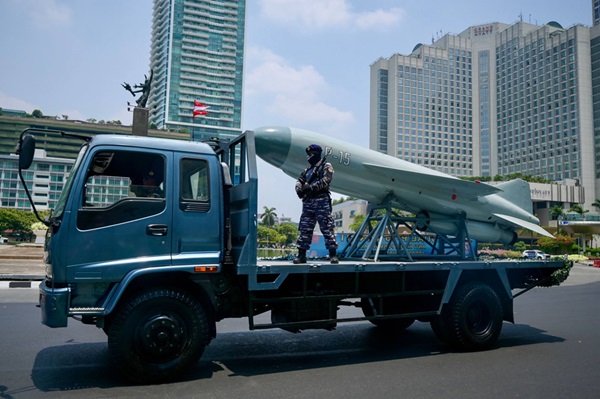Indonesia and the Philippines have been quietly strengthening defense support over the past decade, but recent developments have brought them into the spotlight. Indonesia’s offer to sell anti-submarine aircraft to the Philippines has highlighted the growing cooperation between the two countries in the defense sector, particularly in the context of escalating tensions in the South China Sea.
Analysts have noted Indonesia’s interest in acquiring Chinese naval missiles, which some suggest is a political move aimed at reassuring Beijing and avoiding confrontation. During a visit to the Philippines on January 10, Indonesian President Joko Widodo emphasized the need to strengthen political and security ties through concrete steps, including the sale of anti-submarine aircraft to Manila.
The Philippine military’s decision to deploy anti-submarine aircraft in the South China Sea reflects its growing concerns about perceived threats from Chinese ships in the region. Yokie Rahmad Isjchwansyah, a military analyst and master’s student in international relations, highlighted Indonesia’s potential in marketing its defense industry through Defend ID, a state-owned enterprise launched in 2022. Defend ID produces a wide range of military equipment, including aircraft, for various military operations.
Indonesia’s offer to sell anti-submarine aircraft to the Philippines is not only economically motivated but also demonstrates solidarity among ASEAN countries in addressing the South China Sea conflict. The acquisition of AS565 Panther helicopters, which can be configured for anti-submarine missions, could enhance the Philippines’ naval capabilities.
The Philippines has been a loyal customer of Indonesia’s defense equipment, including weapons, aircraft, and vessels. These acquisitions have not only strengthened the Philippines’ military but also fostered regional cooperation, with other Southeast Asian countries also using Indonesian-made weapons.
However, Indonesia’s potential acquisition of Chinese-made missiles has raised concerns among analysts. While some argue that it could be a strategic move to diversify Indonesia’s arms suppliers and reduce dependence on a few countries, others view it as a risky decision given the escalating tensions in the region.
China’s assertive claims in the South China Sea have led to increased tensions with neighboring countries, including Indonesia. The overlapping claims between China’s “nine-dash line” and Indonesia’s exclusive economic zone have resulted in stand-offs in the past. Therefore, Indonesia’s potential acquisition of Chinese missiles is seen as a delicate balancing act between defense modernization and political considerations.
Indonesia’s offer to sell anti-submarine aircraft to the Philippines reflects the growing defense ties between the two countries in the face of escalating tensions in the South China Sea. While this move is aimed at enhancing regional security and solidarity within ASEAN, Indonesia’s potential acquisition of Chinese missiles raises complex strategic and political considerations in the midst of evolving geopolitical dynamics in the region.
(Source: SCMP | The Straits Times)









